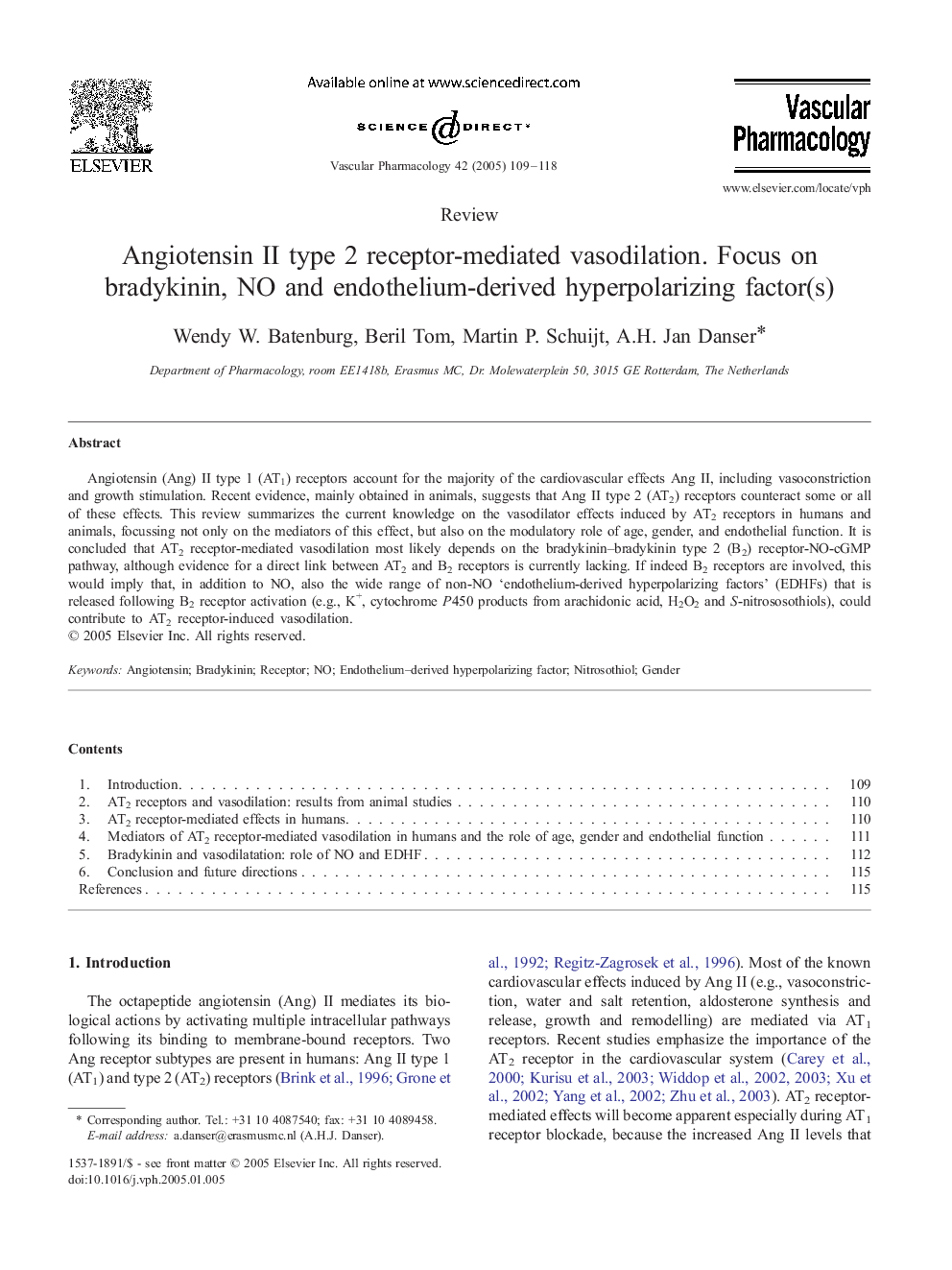| Article ID | Journal | Published Year | Pages | File Type |
|---|---|---|---|---|
| 9020868 | Vascular Pharmacology | 2005 | 10 Pages |
Abstract
Angiotensin (Ang) II type 1 (AT1) receptors account for the majority of the cardiovascular effects Ang II, including vasoconstriction and growth stimulation. Recent evidence, mainly obtained in animals, suggests that Ang II type 2 (AT2) receptors counteract some or all of these effects. This review summarizes the current knowledge on the vasodilator effects induced by AT2 receptors in humans and animals, focussing not only on the mediators of this effect, but also on the modulatory role of age, gender, and endothelial function. It is concluded that AT2 receptor-mediated vasodilation most likely depends on the bradykinin-bradykinin type 2 (B2) receptor-NO-cGMP pathway, although evidence for a direct link between AT2 and B2 receptors is currently lacking. If indeed B2 receptors are involved, this would imply that, in addition to NO, also the wide range of non-NO 'endothelium-derived hyperpolarizing factors' (EDHFs) that is released following B2 receptor activation (e.g., K+, cytochrome P450 products from arachidonic acid, H2O2 and S-nitrososothiols), could contribute to AT2 receptor-induced vasodilation.
Related Topics
Health Sciences
Medicine and Dentistry
Cardiology and Cardiovascular Medicine
Authors
Wendy W. Batenburg, Beril Tom, Martin P. Schuijt, A.H. Jan Danser,
